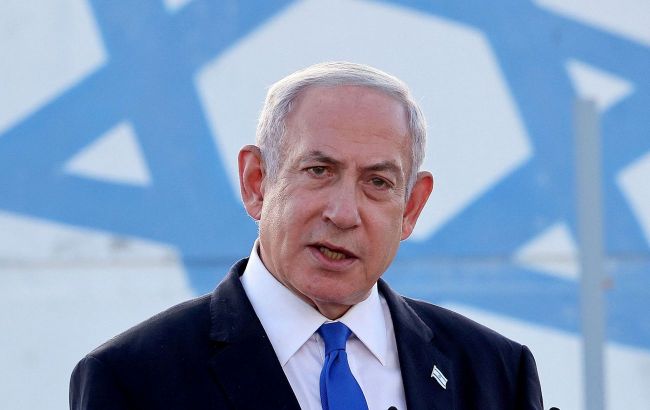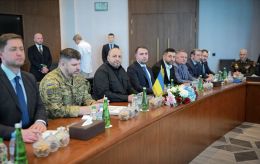Netanyahu wants to cut off humanitarian aid to Gaza: Reason explained
 Israeli Prime Minister Benjamin Netanyahu (Getty Images)
Israeli Prime Minister Benjamin Netanyahu (Getty Images)
Israeli Prime Minister Benjamin Netanyahu is considering a plan to halt humanitarian aid to the northern part of Gaza to starve Hamas militants, according to Politico.
According to the report, if the plan is implemented, hundreds of thousands of Palestinians, unwilling or unable to leave their homes, may be left without food and water. The plan would also increase pressure by giving Palestinians one week to evacuate one-third of Gaza (including Gaza City) before it is declared a closed military zone.
Those who remain will be considered combatants, and military rules would permit troops to kill them. Additionally, these individuals will be deprived of food, water, medicine, and fuel.
A group of retired generals proposed the plan to Netanyahu and the Israeli parliament. Its main architect claims it is the only way to break Hamas's hold on northern Gaza and pressure the group into releasing the remaining hostages.
Furthermore, the plan outlines that Israel would maintain control over the northern part of Gaza for an indefinite period to establish a new administration without Hamas, effectively dividing Gaza into two parts.
The government has not yet decided on the full implementation of the so-called "Generals' Plan," and it is unclear how seriously it is being considered.
When asked whether the evacuation orders for northern Gaza are the first steps of this plan, Israeli Defense Forces spokesperson Lieutenant Colonel Nadav Shoshani responded negatively.
"We have not received a plan like that," he said.
However, one official familiar with the matter said parts of the plan are already being implemented, without specifying which ones. A second Israeli official confirmed that Netanyahu had read and studied the plan, along with many others that had come his way during the war. However, no indication was given as to whether any have been adopted.
Yesterday Israel began its offensive against Hamas fighters in the Jabalia refugee camp, north of the city. According to the UN and Israel's military agency responsible for humanitarian crossings, no trucks carrying food, water, or medicine have entered the northern region since September 30.
A US State Department spokesperson said Washington opposes any plan that would result in a direct Israeli occupation of Gaza.
Human rights organizations warn that this plan will likely lead to civilian starvation and violates international law, which prohibits the use of food as a weapon and forced displacement.
Meanwhile, accusations that Israel is deliberately restricting food supplies to Gaza are central to the genocide case brought against the country in the International Court of Justice. Israel denies these charges.
The report added that so far, only a small number of Palestinians have heeded the latest evacuation order. Some elderly and sick individuals are afraid to leave their homes, while many others fear they have nowhere to go and will never be allowed to return. Politico writes that Israel has not allowed the return of those who fled earlier in the war.
Also, yesterday Netanyahu called on UN Secretary-General António Guterres to withdraw United Nations peacekeeping forces from Lebanon, arguing that Hezbollah is using the peacekeepers as human shields.
The European Union condemned Israel’s attacks on UN peacekeeping forces in Lebanon, demanding an immediate explanation from the country.

